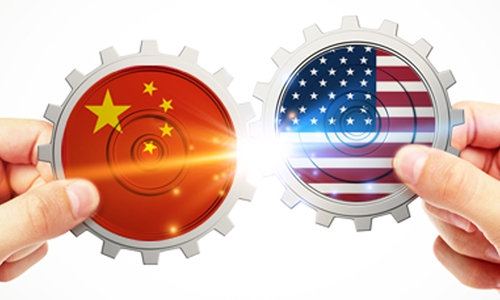Top diplomats’ meet expected to yield results: Global Times editorial
Source:Global Times Published: 2020/6/18 21:23:40

GT photo
Amid deteriorating China-US relations, Yang Jiechi, a member of the Political Bureau of the Communist Party of China (CPC) Central Committee and director of the Office of the Foreign Affairs Commission of the CPC Central Committee, held a closed-door meeting with US State Secretary Mike Pompeo on Thursday (Beijing local time) in Hawaii. The meeting was seen as a sign that the two countries want to do something to ease tensions between them.They released a brief statement after the dialogue, which showed they are open to maintaining ties. But they focused on different things. This scenario reflects the current China-US relationship: They are not likely to break from each other, but are also confused on how to maintain their ties. A consensus may be difficult to achieve, and changes may happen even it is reached.
In the past two years, China and the US have been using harsher words against each other, and are preparing for a possible further deterioration in their ties, while hesitating and reflecting on the purpose of doing these.
China has never wanted such a stalemate in relations with the US, and the latter bares much of the responsibility for deteriorating ties. But will the US really benefit from decoupling from China? Will the US be "great again" after decoupling? This extreme proposition is not supported by the political and economic logic of the 21st century or by current realities. Many risks due to the rapid deterioration in China-US relations are gradually emerging.
Many are wondering whether the world's two largest economies will be - or already are - engaged in a cold war. Even at the academic level, it seems that the US side is more interested in fanning the flames of such a notion. The US public opinion is to some extent self-satisfying by threatening China with words like "new cold war" and "decoupling." It is hard to use human society's previous experience to define current China-US relations. If today's US administration tries to shape China-US relations the way it did during the Cold War era, most of its attempts will be in vain.
Is a new cold war in line with any country's interests? Is that what most American people really want, or just the few fanatics in geopolitics and ideology? The continuing exchanges between China and the US are hugely beneficial. Since Chinese and American societies have already benefited from their peaceful relations, how can the two countries confront each other again and bear the risks and losses brought by this disruptive change? Such a historical reversal is bound to be prevented by the times.
The US' current policy toward China is petty. Washington and Beijing are dealing with relations between two major powers. Such relations determine international relations in the 21st century, and will affect the lives of countless people. The US has a two-party system and many policies are short-term. Now, it only cares about the interests of the ruling party. The common sense and logic of China-US relations have suffered from bigger impact.
However, deteriorating China-US relations will bring fewer and fewer benefits for US politicians. Restoring bilateral relations will bring more benefits. We hope the US administration and its domestic opponents stop comparing their tough stance against China to compete in the election, and that they can rebuild the normal atmosphere of the US' China policy.
We hope the Hawaii meeting will not be in vain. The US' epidemic situation has worsened, and another outbreak appeared in Beijing. The two sides have overcome difficulties to meet in Hawaii, and we look forward to achievements.
Posted in: EDITORIAL